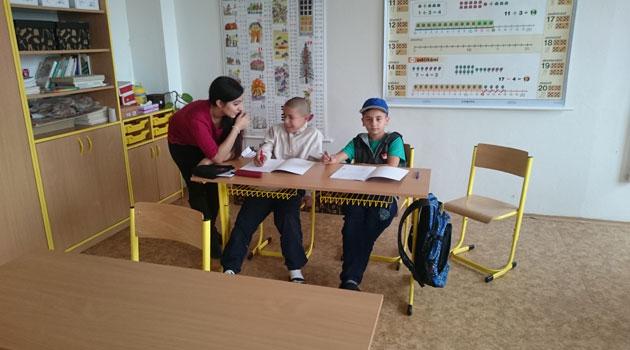Survey on Czech school reform: Law alone will not resolve ethnic segregation

Is Czech society heading toward a fairer school system that will no longer discriminate against children who are medically disabled or socially disadvantaged? A system that will not discriminate against children who are Romani?
Last week’s approved amendment to the Schools Act is filling some experts with optimism while others are more skeptical. News server Romea.cz has reached out to eminent figures involved in the discussion about the Czech schools with several questions – the latest response is below.
Štěpán Drahokoupil, Open Society Fund
Q: Does the form in which the amendment to the Schools Act was approved represent a genuine step forward toward inclusion? Some experts consider it a fundamental breakthrough, others are more cautious. What do you think?
A: The form of the amendment approved by the Chamber of Deputies is definitely a step toward inclusive education. The retreat from an emphasis on establishing diagnoses and the introduction of support measures for pupils is an important breakthrough in the overall approach to education here.The Czech schools will now operate for many years to come on the basis of this legal framework. Naturally, in and of itself the law will not resolve the barriers to inclusion, it just provides an important basis. Schools and educational counseling facilities must prepare themselves to actually use the support measures and more financing must be found so the whole system can function well.
Q: How do you explain the fact that this change has sparked relatively little media interest? The problem of "special schools" has been discussed here for many years, intensively and passionately, and suddenly it’s as if that discussion never existed.
A: Actually, general media interest in this amendment was considerable – especially after President Zeman’s remarks, the topic of inclusion made it onto the front pages of the newspapers. However, this topic has not been discussed from the perspective of the "practical primary schools" (the former "special schools") only, but from the perspective of the entire system of special education and support for pupils with various types of disabilities or disadvantages in mainstream primary schools. The "practical primary schools" are not directly much affected by this amendment, because those schools are not actually defined anywhere in the law, they operate in a kind of legal vacuum. Ethnic segregation in those schools, where according to recent data from the Czech School Inspection Authority, 32.4 % of those studying there are Romani, will not be resolved by this law in and of itself.
Q: What other steps must follow for us to actually head in the direction of fair, non-discriminatory schools? Might not the reforms get jammed up if politicians claim there is no money for them? What kind of budget increase will the implementation of these reforms require, in your view?
A: Here what will be completely crucial is the form of Decrees No. 72 and 73, which regulate counseling services and pupils with special educational needs. For the success of the support measures, what will be important is the way in which the reform to the financing of schools established by Regional Authorities is undertaken. Increased financing will improve the education of many children, but this is not just about pouring more money into the system. This is also about successfully using support measures and changing the approach to the education of pupils so that school failure is overcome. What the schools need more than moeny are skills in the social area. The money is important to the overall success of this reform, but it is not the only condition of that success, far from it.
Q: Some skeptical observers believe that heading toward inclusion could run into the problem that society is not prepared for it. There are too many fears and prejudices in society, "white" parents will defend themselves against inclusion and pressure school directors to continue the segregation of Romani children and other disadvantaged children in some form. These observers believe politicians will back down in the face of this pressure.
A: Those concerns are certainly completely appropriate and the current practice of segregation in many Czech schools will not disappear with the adoption of one law. However, it is not possible to sit and wait for society to correct itself by some miracle. On the contrary, this amendment can contribute to that correction. When we look at the reasons the schools are unprepared, this is often based in ignorance about pupils who deviate from the norm.That makes it basically very easy to accept and foster prejudice about someone, whether a Romani pupil or a wheelchair user, whom we essentially do not know personally and don’t understand. Despite the fact that this amendment focuses on pupils with special educational needs, it actually aids all children. It supports a better education for children in the mainstream schools, which will be able to handle pupils with various differences. All pupils will then be better prepared for life if they meet the widest possible variety of people when they are at school.